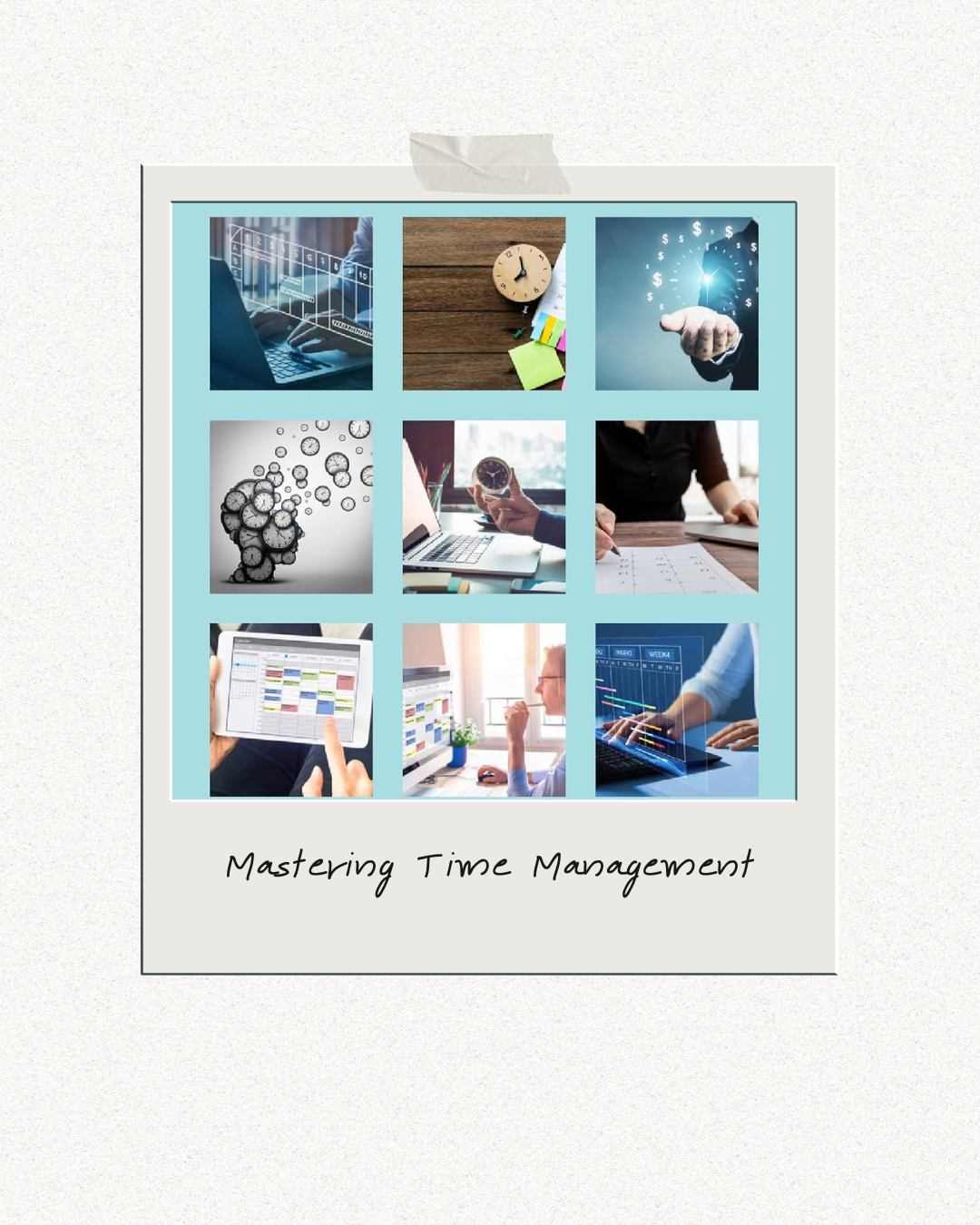In a world filled with distractions and endless to-do lists, mastering time management has become more important than ever. Whether you’re a busy professional, a student, or a parent juggling multiple responsibilities, effective time management can help you achieve your goals and maintain a sense of balance in your life. In this blog, we’ll explore practical strategies to help you manage your time wisely and increase your productivity.
Understanding the Importance of Time Management
Time management is not just about getting more done in less time; it’s about making informed choices about how you spend your time. Effective time management can lead to:
- Increased Productivity: Focusing on the right tasks helps you achieve more in less time.
- Reduced Stress: A clear plan can alleviate the anxiety of feeling overwhelmed by tasks.
- Better Work-Life Balance: Prioritizing your time allows you to dedicate time to both work and personal life.
- Improved Quality of Work: When you manage your time well, you can devote attention to detail, leading to better outcomes.
Key Strategies for Effective Time Management
1. Set Clear Goals
Start by defining your short-term and long-term goals. Use the SMART criteria—Specific, Measurable, Achievable, Relevant, and Time-bound—to ensure your goals are well-structured. This clarity will guide your daily tasks and priorities.
2. Prioritize Tasks
Once you have your goals, create a to-do list and prioritize tasks based on their urgency and importance. The Eisenhower Matrix is a helpful tool for this:
- Urgent and Important: Do these tasks immediately.
- Important, Not Urgent: Schedule these tasks for later.
- Urgent, Not Important: Delegate if possible.
- Not Urgent, Not Important: Eliminate or minimize these tasks.
3. Plan Your Day
Take time each morning or the night before to plan your day. Allocate specific time slots for each task, including breaks. This structured approach helps you stay focused and accountable.
4. Use Time Management Techniques
Experiment with various techniques to find what works best for you:
- Pomodoro Technique: Work for 25 minutes, then take a 5-minute break. After four sessions, take a longer break.
- Time Blocking: Reserve chunks of time on your calendar for specific tasks or activities.
- The 2-Minute Rule: If a task takes less than two minutes, do it immediately rather than adding it to your to-do list.
5. Limit Distractions
Identify your main distractions—whether it’s social media, email notifications, or a noisy environment—and find ways to minimize them. Consider using apps that block distractions or set specific times for checking messages and emails.
6. Learn to Say No
It’s essential to recognize your limits. Taking on too many commitments can lead to burnout. Be honest about your availability and don’t hesitate to decline tasks that don’t align with your goals.
7. Reflect and Adjust
At the end of each week, reflect on what you accomplished and where you struggled. Adjust your strategies as needed. Continuous improvement is key to mastering time management.
Conclusion
Mastering time management is a journey that requires practice and patience. By setting clear goals, prioritizing tasks, and implementing effective strategies, you can enhance your productivity and achieve a healthier work-life balance. Remember, the goal is not just to be busy but to be purposeful with your time. Start today, and watch how managing your time effectively transforms your life!



